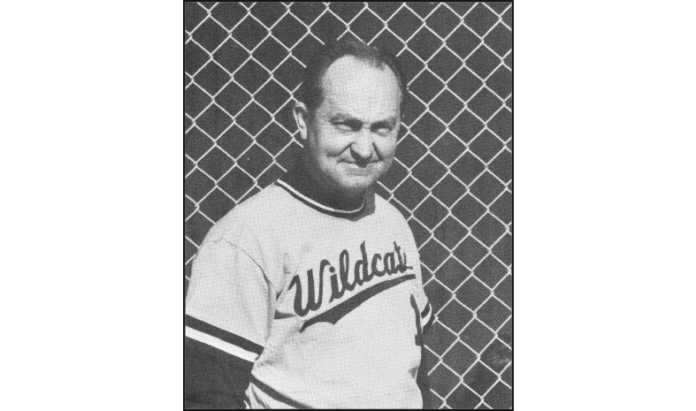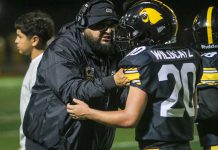WATSONVILLE — Baseball is said to be a game of discipline, grit and tradition.
Harlan Guy, Watsonville’s late legendary baseball coach, was baseball personified.
“He loved baseball,” said Guy’s son, Jon, “He had a way of doing things, and he loved the game.”
Watsonville will honor Guy on Wednesday night by naming the baseball field after him in the moments before the Wildcatz’s Monterey Bay League Pacific division game against cross-city rival Pajaro Valley.
First pitch is scheduled for 5 p.m.
The ceremony is expected to start a few minutes prior to the game, according to former Watsonville Athletic Director Brad Hubbard.
Dozens of Guy’s former players and several family members are expected to be on hand for the dedication. Keeping with Guy’s persona, Hubbard said it would be a short but sweet commemoration.
“I think that’s how Harlan would’ve wanted it,” Hubbard said. “Get it done quickly, and get to baseball. He was not one for theatrics. He was no-nonsense all the time.”
Known for being a tough but fair coach and teacher, Guy was the lead man of the baseball program for close to 20 seasons before stepping down in 1980, and also became the school’s first A.D. in ’76. He won numerous league championships over the years and helped several baseball players reach either the college or professional level.
With Hubbard’s help, Mark Corley, Paul Lauesen and Tim Griffin — all of whom played for Guy in the ‘70s — spearheaded the movement to name the field after the coach, who died three years ago.
Corley said Watsonville principal Elaine Legorreta, and her husband Pete were also “instrumental” in getting the dedication approved by the Pajaro Valley Unified School District’s Board of Trustees.
“He was the Geiser of our generation,” Corley said. “His passion for the game, the students, everything. It only seems right.”
Former pro pitchers Mark and Dave Eichhorn, and Ken Swank all played for Guy during a talent-rich era of Watsonville baseball.
Corley shared the diamond with all three before graduating in ’80. He said despite the trio’s overwhelming talent, Guy never let any of them cut corners. He treated them the same way he treated everyone else.
“There was no favoritism,” Corley said. “Regardless of who you’re related to, your race or your athletic ability. He had a set of rules, and if you didn’t follow them, then you were off the team.”
If a player ever missed practice they were out for the next game — at the very least — and everyone was expected to be uniform. That included having the same haircut: high and tight.
“If you had long hair,” said Guy’s son, Mark, “you were out of here.”
Added Jon: “I was the only kid in eighth grade that had a flat top. He was very particular.”
Lauesen said playing under Guy was an irreplaceable life lesson. He was “old school” in his approach, but it was who he was, and he never tried to be anyone else. His honesty was refreshing.
“Today, everyone gets a trophy, back then you didn’t,” Lauesen said. “You don’t get an at-a-boy for going out for the team. You had to earn a spot… If the world was made up of all Harlan Guys, it would be a better place.”
Jon said at the center of his father’s gruff, brutally-honest exterior was a man who cared for the kids’ well-being and only wanted to see them succeed.
A ’75 Watsonville grad, Jon had the opportunity to play for his father. Save for the similarities in appearance, it was hard to tell if they were even related.
“He was harder on me than just about anyone else. It was tough to play for him,” Jon said. “He didn’t tell you what you wanted to hear. He told you the truth.”
Guy not only helped build up Watsonville athletics figuratively, but literally. He helped construct the concession stands for both the baseball and football fields, laying the cement blocks and building the foundation for each by hand.
Raised on a farm in Moscow, Idaho, handiwork was nothing new for Guy, who bought a five-acre farm of his own — complete with 40 cows — and moved to Sacramento after retiring from coaching and teaching.
Mark said he remembers spending the vast majority of his childhood on the Watsonville campus, helping his father with fundraisers, being the team’s bat boy or simply playing in the dirt as Guy worked on the baseball field.
“That was usual,” Mark said. “He was dedicated to this school. He helped build this — all of this — and he had some great people behind him. This means a lot for the family.”










